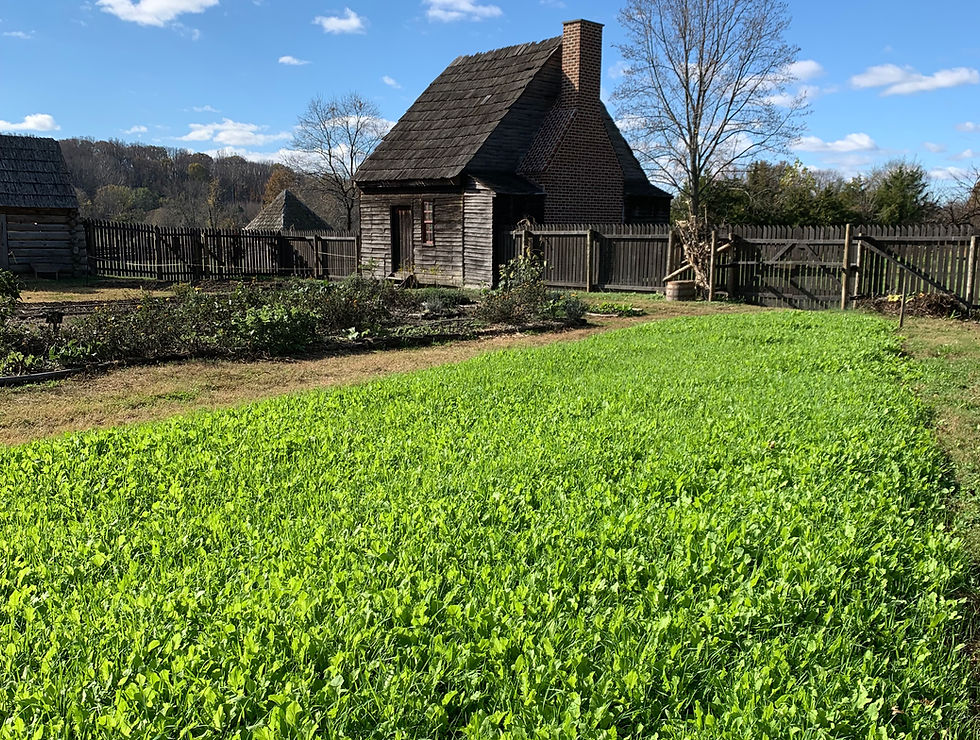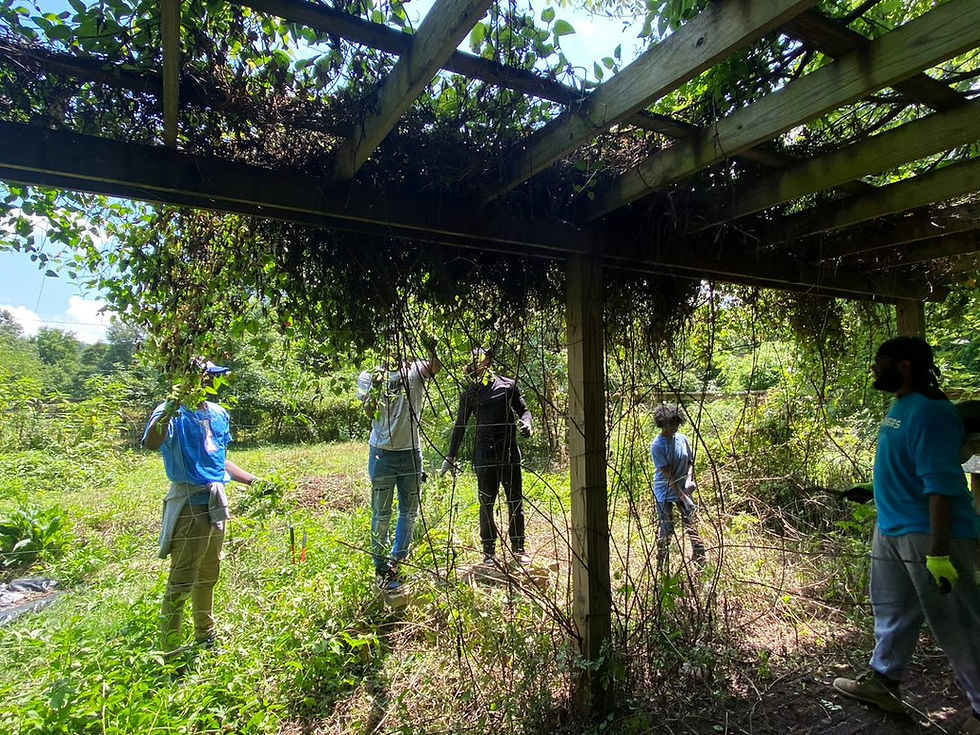On Finding the Fields Frozen
- Accokeek Foundation

- Nov 13, 2012
- 2 min read
by Farmer Becky
At the time when the hurricane was upgraded, I realized the tomatoes were goners. We had watched them flounder in the dry heat of the summer and then flourish in the early autumn. We had developed attachments: I knew each unlabeled variety, where a genetic variation had made these fruits smaller, or where a stray gold tomato had slipped in with the reds. I was waiting for the big late-season Mortgage Lifter to turn its red and grace us all with its large meatiness. And then, with a weather report, we knew in two days time we would lose them.
Before the frost of the other week, we covered the youngest of our transplants, and stapled our screened-in greenhouse with warming plastic to try to prolong the basil, cucumbers, peppers, and cherry tomatoes. The temperature dipped to 28°, and that morning as I drove into the farm, I dreaded encountering what the freeze had done to the crops that had been with us for so many months. We had prepared by harvesting heavy all of the fruit that may still be valuable, but to expect their frozen shriveled form was saddening to me.
It is the ultimate experiment in letting go for me, this perpetual acceptance of what the weather is bringing, must bring, in order to maintain the balances the natural world requires. It is
part of the process of production for me to know so intimately the land and crops and then expect they will change form drastically when we pull them for compost-making or mow them or wait for them to die in the frost. And while this is a sad thing at times for me, it is also a perpetual lesson in letting go, and loving without expectation. I suppose it is also a lesson in recognizing the positive: on the same morning of the freeze, we ate raw greens with delight for their nutty sweetness was greatly intensified by the cold.
Accepting loss can have great ramifications for personal growth, but I also wonder where the line lies for the sustainable farm to accept crop loss or to fight nature. I tend to err on the side of choosing seeds and crops that can sustain themselves in extreme conditions, instead of going through extreme measures to cover and insulate crops from cold. In fruit farming, many orchard owners will pay helicopter pilots to break up the cold air that would settle on their trees during a frost. I have been a part of a system where we burned wood in a furnace in the greenhouse on cold nights, returning every few hours to feed the flames.
In our case, we tucked in all sides of the greenhouse, renewed the plastic on its doors, and figured that was enough effort to fool the cold. What we encountered was blackened basil, frozen tomatoes, and frost-killed cucumbers. I look forward to the greens.
Read more Field Notes







